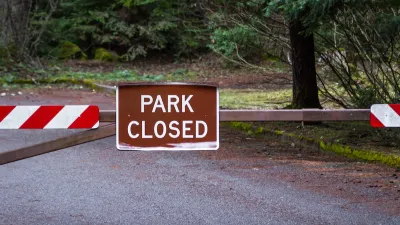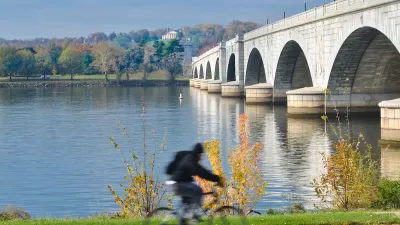A proposed rebate on electric bikes in the District would be more cost-effective in reducing gasoline miles driven than electric car subsidies thanks to the higher elasticity of e-bike demand.

According to an article by David Edmondson in Greater Greater Washington, a proposed $400 to $1,200 e-bike subsidy in Washington, D.C. “packs the most pollution-fighting power” compared to other plans to promote the adoption of zero-emission transportation, bringing the biggest return on investment for reducing gasoline miles driven.
As Edmondson explains, this has to do with the economic concept of elasticity. “[Zero-emission vehicles] are a lot more expensive than e-bikes and, therefore, it takes a lot of money to meaningfully lower the cost of a ZEV compared to an e-bike.” Edmondson used a Canadian model to predict e-bike sales under the new subsidy, predicting a rise of 15 percent in annual sales. “Remarkably, 44% of those sales would go to incentivized buyers who would not have otherwise purchased an e-bike,” Edmondson notes. Most electric car subsidies, on the other hand, tend to be used by people who would already buy electric or hybrid cars.
While they can’t replace all vehicle trips, e-bikes can have a significant impact on gasoline miles. “When a household buys an e-bike, their driving (as measured by vehicle miles traveled, or VMT) decreases by more than a third,” Edmondson found. “When that is taken into consideration, an e-bike subsidy is 2.9 times more effective per dollar at displacing gasoline miles than a ZEV subsidy.”
Edmondson points out the added benefits of e-bikes, such as better health, easier charging, requiring fewer resources for batteries and putting less strain on city streets, and reduced safety risks for pedestrians and other road users.
FULL STORY: Analysis: E-bike subsidies are more cost-effective than EV subsidies

Planetizen Federal Action Tracker
A weekly monitor of how Trump’s orders and actions are impacting planners and planning in America.

San Francisco's School District Spent $105M To Build Affordable Housing for Teachers — And That's Just the Beginning
SFUSD joins a growing list of school districts using their land holdings to address housing affordability challenges faced by their own employees.

The Tiny, Adorable $7,000 Car Turning Japan Onto EVs
The single seat Mibot charges from a regular plug as quickly as an iPad, and is about half the price of an average EV.

As Trump Phases Out FEMA, Is It Time to Flee the Floodplains?
With less federal funding available for disaster relief efforts, the need to relocate at-risk communities is more urgent than ever.

With Protected Lanes, 460% More People Commute by Bike
For those needing more ammo, more data proving what we already knew is here.

In More Metros Than You’d Think, Suburbs are Now More Expensive Than the City
If you're moving to the burbs to save on square footage, data shows you should think again.
Urban Design for Planners 1: Software Tools
This six-course series explores essential urban design concepts using open source software and equips planners with the tools they need to participate fully in the urban design process.
Planning for Universal Design
Learn the tools for implementing Universal Design in planning regulations.
Smith Gee Studio
City of Charlotte
City of Camden Redevelopment Agency
City of Astoria
Transportation Research & Education Center (TREC) at Portland State University
US High Speed Rail Association
City of Camden Redevelopment Agency
Municipality of Princeton (NJ)





























